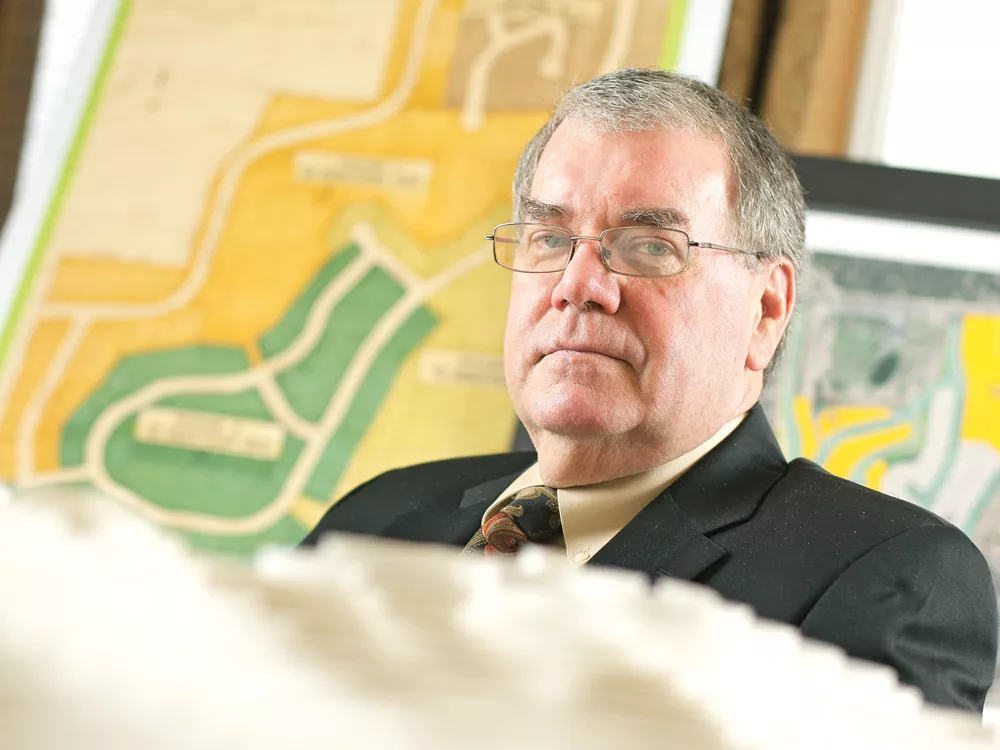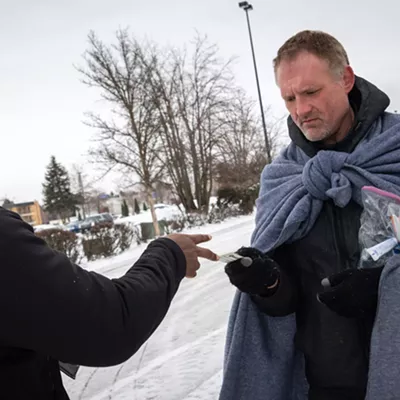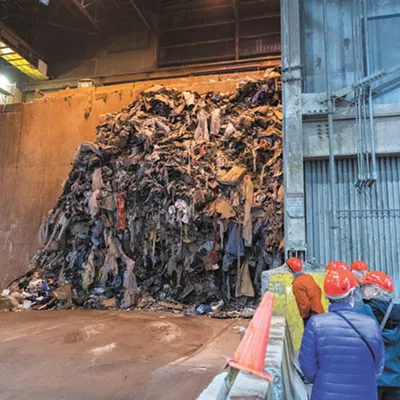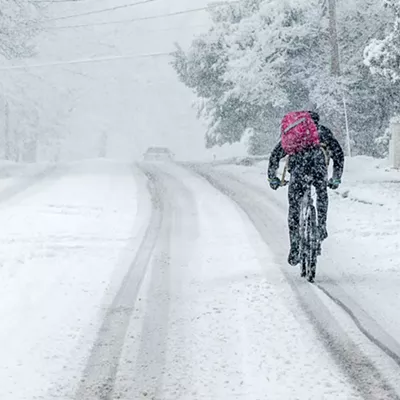The Spokane City Council on Monday refused to overturn a hearing examiner’s decision regarding a Beacon Hill housing development, clearing the way for developers to sue the city for $41 million.
Pete Rayner, who has been pursuing a housing development on eastern Spokane’s Beacon Hill since 2006, says he needs a guarantee from the city that they will build the water infrastructure necessary for his development before he can proceed with construction. He says the city is contractually obligated to provide this service.
The council disagreed, saying that what Rayner thinks is a contract is actually a memo between the city and his firm, Beacon Hill Properties. By a 5-2 vote, the council affirmed the hearing examiner’s decision that the city would split the cost of water infrastructure for the development.
“I wonder what precedent would be set if every one of our 2,000 members of staff could author memos for financial expenditures,” Councilman Jon Snyder says.
Last week, Rayner filed a notice of claim against the city, saying he will sue for damages if the city does not honor what he says are its contractual obligations.
“It would not cost the city a dime to honor its contract,” Rayner says. (Chris Stein)
13 Retirees
When the Spokesman offered early retirement packages to its employees last month, Editor Gary Graham said the deal could take more than 20 people out of his newsroom.
Only 13 accepted the offer, including veteran arts writer Jim Kershner. But now Graham doesn’t want to talk about it. Asked what the next step was, Graham replied via email, “I’m not about to share any of our internal plans with other media.”
Kershner, 58, was more forthcoming. “I jumped on it,” he says. “It was a very generous offer. I personally couldn’t resist.”
The offer, which was available only to employees who were 55 or older and who had been with the paper for at least 20 years, offered full health benefits through the age of 65 and no diminishment of pensions.
Kershner says he’ll keep writing — for another book and in his role as staff historian for historylink.org, among other outlets.
But he says that the paper lost a “significant chunk” of talent in the newsroom, which has 82 fulltime-equivalent employees. “To some extent” readers will notice, Kershner says. “But maybe less than people think.”
Tom Sowa, a business writer and the union president, wouldn’t identify the 13 people who took the offer.
“I’ve decided not to reveal any names, because it’s really not a company decision,” he said on a voicemail. “Ultimately, these are 13 individuals who accepted an opportunity.”
Sowa said he understands that the paper needs to save money. “Cost-cutting is unfortunately part of the industry,” he said. (Nicholas Deshais)
Ellington Trial Delayed
The trial of Jonathan Ellington has been delayed after defense attorneys filed a continuance motion last week.
Ellington is charged with aggravated assault and second-degree murder. His trial was scheduled to begin last Monday but has now been moved to Nov. 29, Kootenai County Deputy Public Defender Anne Taylor says.
Ellington had been convicted of these charges in 2006, but the Idaho Supreme Court in May reversed the conviction when they found that a state police officer likely perjured himself while testifying in the original trial, as reported in last week’s edition of The Inlander. (Chris Stein)
Lean Streets
When the Spokane Valley City Council considered placing a ballot measure for a property tax levy to convert Sprague and Appleway back to two-way streets, the same businesses that supported the conversion cried foul.
They worried that the initially stated cost — $6.4 million — was extravagant. The Spokane Valley Business Association thought that that price tag, which included $3 million in landscaping, would doom the measure.
But now the measure has been pared down to a mere $2.14 million.
“There had been criticism on the council that they were including everything and the kitchen sink in this bond issue to ensure it would fail,” Councilman Bill Gothmann says. “So they took out the kitchen sink.”
Councilwoman Brenda Grassel explains that the more expensive landscaping was originally called for in the since-discarded Sprague-Appleway Revitalization Plan. But the outcry from business owners convinced her that the resolution needed to be reduced.
Gothmann, however, still isn’t happy. He believes that the city should have found money to convert the one-way to a two-way without raising taxes.
“I still do not know anyone within the city of Spokane Valley who’s going to vote in favor of it,” Gothmann says. (Daniel Walters)






























